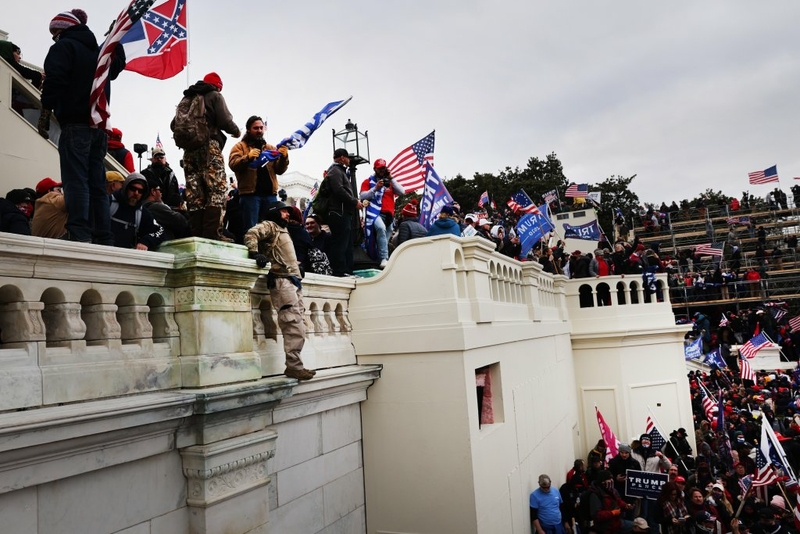Nebraska election officials say their job is more stressful, under the spotlight

LINCOLN — A trio of national researchers took turns Tuesday describing the rising threats and violence directed at officials who handle our elections, direct public health and educate our children.
Three Nebraska election officials said that this state is not completely immune to the same trends described in the “Elections and the Threat of Violence” discussion organized by the national counterterrorism center at the University of Nebraska at Omaha.
“It’s gotten more stressful, it’s a little more grueling. We’re obviously under the microscope more,” said Brian Kruse, the Douglas County election commissioner since 2016.
‘More challenging’
“There’s no comparison with what it’s become today,” added Tracy Overstreet, the Hall County election commissioner.

“It’s more challenging today in so many different ways,” said Lancaster County Election Commissioner Dave Shively, who is leaving his job in January.
While the Nebraska officials said they have not faced the threats and harassment that have caused an exodus of election officials in states such as Pennsylvania, Wisconsin and Michigan, there have been challenges here:
- In September 2020, a suspicious package that looked like a bomb was mailed to the Hall County Election Commissioner’s Office, forcing an evacuation of the building.
- Election offices in Nebraska have been inundated with public records requests associated with the false claims of widespread voter fraud during the 2020 elections. Often, officials say, the requests are “cookie cutter” duplicates sent by several people, or identical to requests already sent.
- In June, a Lincoln man pleaded guilty to posting threatening messages on an Instagram page aimed at a Colorado election official. Travis Ford, 42, of Lincoln, faces up to two years in prison.
Some reluctant to work polls
The three Nebraska election officials said the COVID-19 pandemic caused some poll workers to quit, but they’re also seeing some people reluctant to sign up to work elections because of the harassment and threats seen nationwide.

“Let’s hope that Nebraskans continue to be ‘Nebraska Nice,’ ” said Kruse, echoing a past state tourism slogan.
A spokeswoman for the Nebraska Secretary of State’s Office joined the three local officials in saying that most voters have faith in their local county clerks and election commissioners and, except for a few, show respect in seeking answers to questions.
But Cindi Allen of the Secretary of State’s Office said that the deluge of records requests includes requests for records that local election officials “do not have and are not required to have.”
Must consider a ‘different light’
Overstreet, a former newspaper reporter, said her county attorney has jokingly suggested that a quota be set on the number of requests his office has to respond to concerning election records.

The requests add to the increased volume of work, and there are also new security measures to be considered, she said.
For instance, Hall County used to use a metal post office box as its drop box for early ballots, but now the county employs a box that’s more securely bolted to the ground, has a built-in fire extinguisher and liner (to prevent someone from urinating in the box), has a more secure lock and is monitored 24/7 by a surveillance camera.
“We have to think about everything in a different light,” Overstreet said. “We haven’t seen the problems here, but we have to pay attention to what’s happening across the country.”
UNO’s National Counterterrorism, Innovation, Technology and Education Center, or NCITE, sponsored the discussion Tuesday by three researchers working on federal grants to look into the threat of violence associated with elections.
2020 election polarizing
Peter Simi, a sociologist at Chapman University who has written about white supremacist groups, said that growing distrust of public institutions and the news media, as well as the polarizing presidential election of 2020, have served to accelerate a trend that began during the Watergate years.
The former president stoked fears of “rigged elections,” which culminated in the Jan. 6 attack on the U.S. Capitol, Simi said.
Threats against public officials, like those dealing with the COVID-19 pandemic, are part of a larger issue, he said, calling it “a phase of everyday insurgency.”
Such threats, Simi added, can be written off as a “nuisance” fomented by a “a few nutbags,” but they can be effective tools to intimidate and depress voting, without any threat being carried out.
Steven Windisch, a criminal justice professor with Temple University, said death threats against public officials have been severely underreported.
Dozens embrace ‘big lie’
He said that while the current president of the United States isn’t screaming “stop the steal,” dozens of congressional candidates are embracing the “big lie” about voter fraud in the 2020 election in their 2022 campaigns.
Iris Malone, a political scientist with George Washington University, was less pessimistic, saying that overt violence is rare and that some of the factors that led to the Jan. 6 violence aren’t present now. COVID-19 lockdowns are over, Malone said, and overall, midterm elections draw less participation and emotion.
But, she added, “There’s still a risk of vigilante justice. It only takes one individual.”








